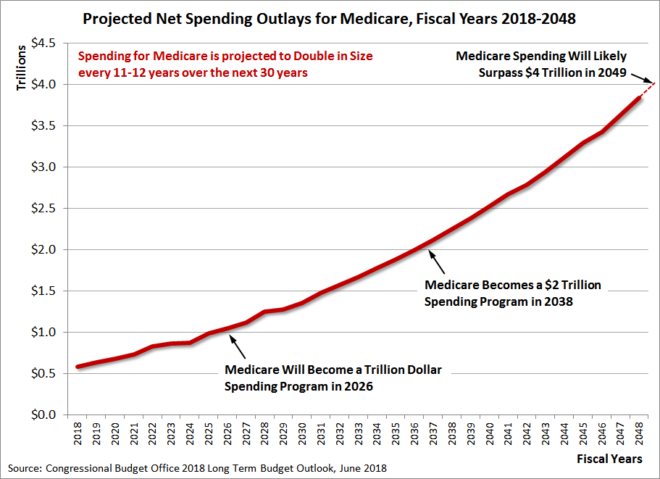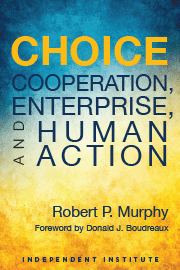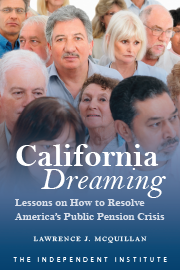K. Lloyd Billingsley • Tuesday, August 7, 2018 •
On a recent road trip, this writer learned that in Oregon it is “against the law to pump your own gasoline,” as the designated pumper put it. What penalty a motorist would incur for daring to pump her or his own gas was not apparent, but according to the attendant, it was a matter of the government creating jobs. Any motorist could be forgiven for thinking it counterproductive to pay someone to perform a task just about anybody could do. At one time, some gasoline outlets offered a choice of “full service” or “self-serve,” usually at a lower price. In Oregon and New Jersey, the only states to ban self-service, it’s the government’s way or the highway. After the initial shock, out-of-state motorists find this a matter of some amusement, but there are parallels.
As this writer’s grandchildren can verify, even a four-year-old can select a floor and push the button on the elevator. Yet, at one time the California legislature was paying government employees to operate the elevators, which go to the right floor and make a perfect level stop every time. In a better arrangement, government pays workers for tasks it is not practical or prudent for individuals to perform, such as police and military service. When the government pays for something anyone can do it wastes taxpayer dollars and increases prices. As this motorist noted, prices were much lower at self-serve stations in Washington State, under $3.00 at one, and 18.4 cents of that is federal tax alone.
At one time, motorists of a certain age will recall, gasoline outlets were “service stations.” A uniformed attendant would pump the gas, check the oil, check the tire pressure and clean the windshield, all with amazing efficiency. In Oregon and New Jersey, all they do is pump, so their ban on self-service isn’t exactly a progressive policy.
***
K. Lloyd Billingsley is a Policy Fellow at the Independent Institute and a columnist at The Daily Caller.
Craig Eyermann • Monday, August 6, 2018 •
With the looming retirement of America’s baby boom generation, the growth of spending needed to support the Medicare spending program is set to explode over the next 30 years.
In its 2018 Long-Term Budget Outlook, the Congressional Budget Office projected the amount of net spending that Medicare is expected to consume from the U.S. government’s 2018 fiscal year through its 2048 fiscal year. The following chart reveals that on its current trajectory, the cost of Medicare will double in size several times during the next 30 years.

Craig Eyermann • Monday, August 6, 2018 •
Barry Ritholtz is a bottom-line kind of guy. Best known as an influential blogger whose popularity earned him a slot writing articles at Bloomberg, the investment adviser recently weighed in on a topic near and dear to me: the sheer waste of taxpayer money that local politicians “invest” in professional sports stadiums to host teams owned by billionaires. Here’s Barry:
Sam Staley • Friday, August 3, 2018 •
Fred Rogers (1928 – 2003) became an iconic symbol of the “do-good” vision of PBS during his long run as creator, star, and producer of Mr. Rogers’ Neighborhood. For many critics, the show was simplistic and naive, whitewashing harsh realities and taking a simplistic approach to complex phenomena and events such as the Vietnam War. Others believed he was brainwashing children with liberal or progressive values. Both critics should come away with a different impression of Rogers’ contributions to television and civil society after watching Won’t You Be My Neighbor, the documentary chronicling the development and long run of his television show.
For most of his career, Rogers eschewed the public limelight and avoided public commentary despite being a lifelong Republican. Rather, he focused his efforts on one purpose: to communicate to young children that they have singular, objective value that should be honored and cherished in its own right. He rightly recognized that many children were growing up in homes and neighborhoods that did not reinforce the concept of unconditional love and their objective worth as a human being. Perhaps more importantly, he understood intuitively that young children harbor intense feelings, have an innate desire to be loved, and are conflicted about the world around them.
Randall Holcombe • Friday, August 3, 2018 •
I’ve just published a book, Political Capitalism: How Economic and Political Power Is Made and Maintained, with Cambridge University Press. The book, aimed primarily at an academic audience, lays out a theoretical foundation for understanding why cronyism and corruption are becoming increasingly common in capitalist economies. Political capitalism is displacing market capitalism.
Political capitalism is a distinct economic system. Our twentieth century way of thinking about economic systems is to view them on a single-dimensioned continuum, with capitalism at one end, socialism at the other, and with mixed economies in between. But political capitalism is not some mixture of capitalism and socialism or government intervention into a market economy.
Supporters of free markets often criticize government interference in a market economy, and tax and regulatory burdens have a clear negative effect that harms productive businesses. That’s one problem with a mixed economy. But political capitalism allows those with connections to profit from government intervention. The well-connected benefit at the expense of others. The problem is not so much how big government is, but what government does.
Raymond March • Thursday, August 2, 2018 •
To say the U.S. pharmaceutical market is highly regulated is an understatement. According to the RegData database developed by the Mercatus Center at George Mason University, the pharmaceutical and medical manufacturing industry as of 2014 had approximately 10,000 more restrictions than the median U.S. industry. Many of these restrictions are enacted by the Food and Drug Administration, which determines whether pharmaceuticals can enter the U.S. market legally. The approval process each drug undergoes is time-consuming (typically requiring 12 years) and expensive (costs can exceed $1 billion).
Political rhetoric suggests little is likely to change. Attorney General Jeff Sessions reportedly involves himself in the DEA’s distribution licenses to grow marijuana for medical research, an unprecedented role for his position. To combat the opioid crisis, President Trump called for fewer prescriptions and possibly the death penalty for illegal distribution. Both proposals create more barriers to patients seeking pain relief or suffering from addiction. The FDA recently began issuing warning letters to companies distributing goods containing kratom. Although the agency considers kratom to have “opioid properties,” kratom is legal in most states.
Despite the extremely stringent regulatory structure and political efforts to expand it, the U.S. pharmaceutical market recently underwent three transformative changes that could bolster significant liberalization:
Robert Higgs • Thursday, August 2, 2018 •
I’m not the sharpest knife in the drawer. Even after I’d earned my Ph.D. degree, my dad used to look at me with a twinkle in his eye and tell me, “Son, the trouble with you is that you don’t know nothing.” And he was right in regard to knowing worthwhile, practical things and having the skills and prowess to get things done. But I know stupid when I see it.
And I see it all around me all the time, especially in the news and the social media. Which is a bit of a mystery, because we live in a world flush with marvelous achievements by people working in the sciences, technology, and the practical arts and crafts, so that a day rarely passes without the announcement of some new discovery, invention, or achievement to expand the understanding and practical attainments of the human race.
Vicki Alger • Wednesday, August 1, 2018 •
California fancies itself as a progressive paradise for the disadvantaged and the downtrodden. In reality, it’s more like Dante’s eighth circle of hell, based on a recent lawsuit filed on behalf of several public school students and taxpayers.
The lawsuit, Ella T. and Katie T. v State of California, was filed in December and alleges that after five years the state still has not implemented its plan to improve student literacy. Consequently, minority elementary students spent years in schools that allowed them to founder at sub-standard levels of literacy. Plaintiffs argue that not only did the state violate their 14th Amendment equal protection rights, the state also engaged in fraudulent spending of taxpayer dollars by financing a public-school system that discriminates against minority students.
Sam Staley • Tuesday, July 31, 2018 •
Mission: Impossible movie fans are leaving theaters satisfied with Tom Cruise’s newest addition to the franchise and for good reason. Mission: Impossible–Fallout is packed with action, leveraging character arcs and themes that keep audiences on edge. Yet, at the same time, the story’s content seems somewhat out of whack as the story defaults toward glorifying the so-called “deep state”.
Fallout is a direct sequel to Mission: Impossible–Rogue Nation. In Rogue Nation, the disbanded covert CIA-sponsored Impossible Missions Force (IMF) lead agent Ethan Hunt (Cruise) was pitted against a terrorist group called The Syndicate run by rogue British agent Soloman Lane (Sean Harris, Serena, Prometheus, ‘71). Hunt and his crew were able to capture Lane and disband the syndicates, but Hunt’s rogue status dogs him.
Craig Eyermann • Tuesday, July 31, 2018 •
The U.S. Department of Veterans Affairs has a lot of problems. Perhaps the worst of which is the extent to which corruption has become institutionalized within the VA.
To guard against corruption, the U.S. government employs Inspector Generals to monitor operations throughout its various departments in order to identify inefficiencies and illegal activities on the part of government bureaucrats. But for that system to work, the government’s Offices of Inspector General (OIG) must be alert and diligent in performing their assigned responsibilities.
























